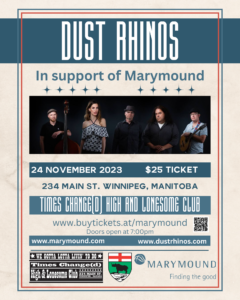“My name is Jackie and I’m a psychiatric nurse within Marymound at the Youth Addictions Stabilization Unit (YASU).
I always knew that I wanted to help people and being exposed to mental health issues within my close friends and family group, it was something that I felt quite passionate about. Making connections with clients or patients I’d say is the most rewarding piece of being a nurse, and that’s why I decided to come into nursing.
At YASU, we take kids both involuntarily as a court ordered and voluntarily, so when kids want to come in on their own volition, to stabilize for up to seven days.
We see kids that are using various substances and we support them through their withdrawal process. We really support them through their physical stabilization and education is a big part of it. We provide a lot of drug education to the kids and as well harm reduction so that when they leave here they know how to be safe in the community.
We do a lot of mental health assessments and trying to set them up for success when they leave here. Whether it’s providing them with outside resources or providing them with tools to help manage their mental health or substance use and lots of advocacy as well. We connect them to community mental health and addiction support. We work pretty closely with AFM and their youth treatment program.
Obviously we recognize some of the pitfalls of having a client come in that we don’t really have a lot of prior experience or relationship with, but I think the time that we spend here is really just building relationships and provide crisis stabilization or crisis intervention and education about harm and risks factors.
We’re trying to build relationships with them in order for them to think of us if they’re in the community and struggling so that they can access services through us. I do love creating those connections and fostering relationships and being able to empower people and advocate for them. We try our best to advocate for the youth. At the end of the day, we are here for the kids and to advocate for them.
I feel like harm reduction in itself can be very empowering when people realize that you’re not expecting them to stop using. We do try to provide a lot of education to the kids and we put together these workbooks for them and help them identify their triggers for use and how to stay safe while using.
Helping them identify those types of things can keep them safer in the future. Knowledge is power, right?”

 Conferences & Training Centre
Conferences & Training Centre